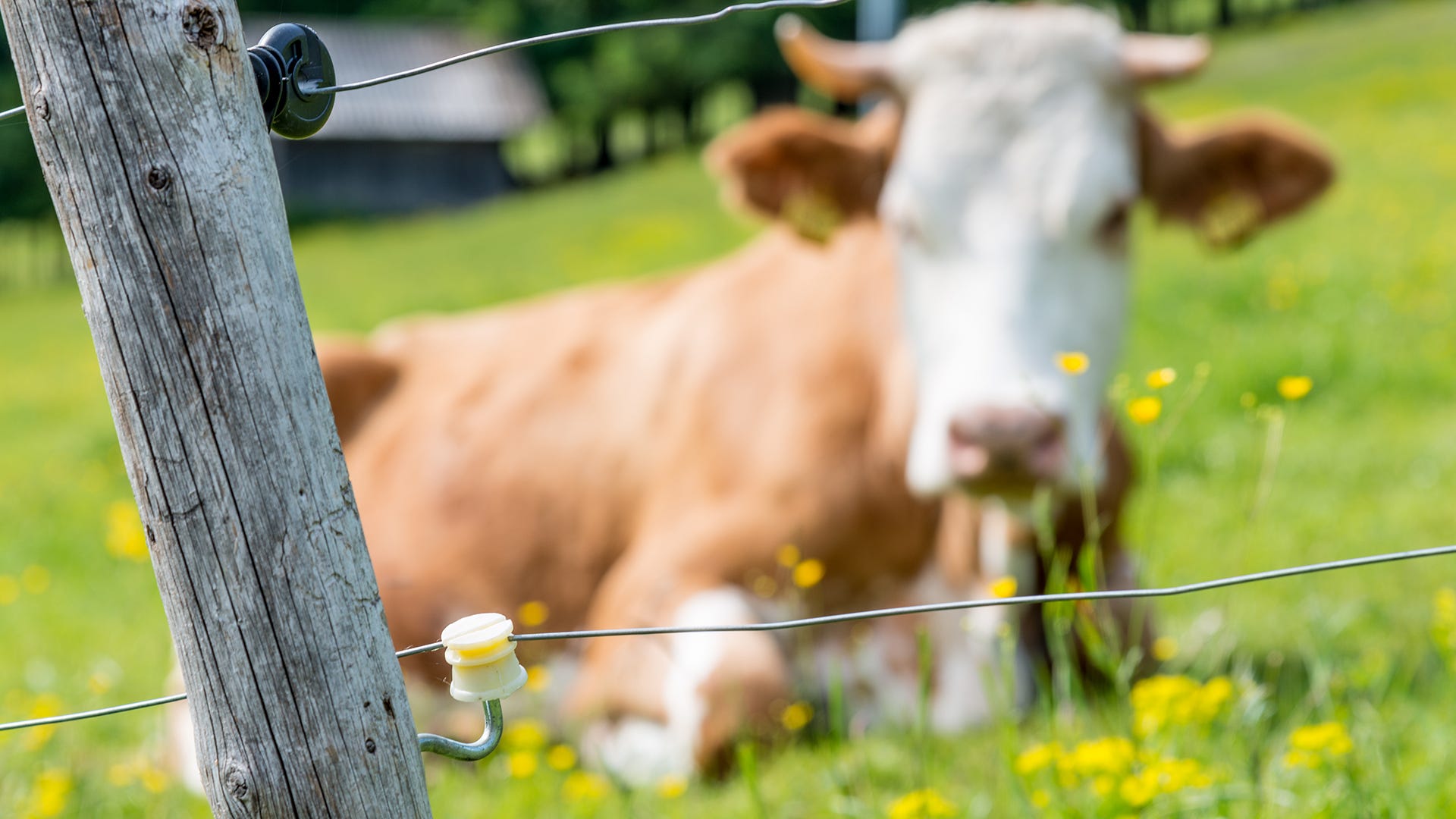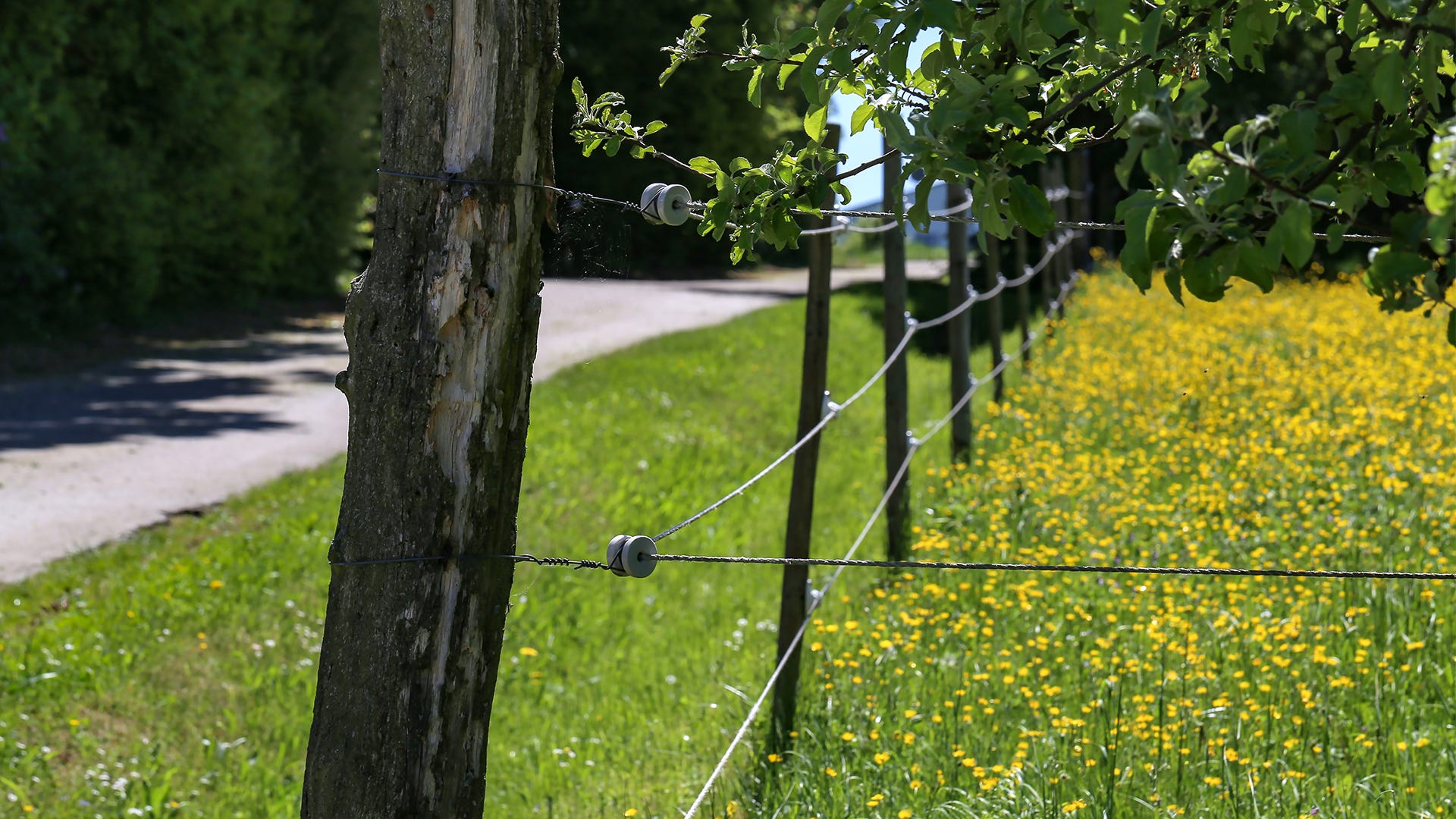

Whether you have fencing to keep livestock in, deter predators, or simply for protection, electric fences are worth the time and effort. They provide many benefits and often are easily maintained. However, at the end of each season, you should check your fencing and complete any maintenance that might be needed to keep your fence working efficiently. Learn what to check for and how to maintain your electric fence throughout the seasons.
Make sure that when you are inspecting your fence, you’re walking around and checking every part of it. If there is a weak part of the fence, the animals that you’re keeping in – or keeping out – will find it. Plus, it is easier to stay ahead of a problem than to let it spread and affect other parts of your fencing.
The winter season is perhaps the harshest on your electric fencing. If you are in an area where it snows, this can be a challenging time. Frozen ground is not nearly as strong of a connector as warmer, moist soil. With the ground hard and frozen, the electricity has a harder time running through it. Snow buildup can act as a layer of insulation between the animal’s feet and the current coming from the ground, which causes a loss of conductivity. Keeping snow away from your fence can help keep your fence working properly.
If your electric fence is solar-powered, layers of snow could block the sun and lessen the charge of your fence or prevent the energizer from charging at all. If you find that your solar charger isn’t well suited for your snowy surroundings, you can switch to an AC-powered charger.
Snow can also cause fencing to sag with the weight of it, which can pull on the wires and poles. Be sure to clean off the snow from the parts of the fence so that it does not build up and cause damage. Learn more about winter electric fencing problems and how to solve them here.

Spring maintenance is a great time to replace and check your fence from any winter damage. Walking around the perimeter of your fence with a fault-finder can help you quickly locate the weaker points of voltage. Check for damaged underground wires, broken insulators, poor connection, or debris that might have fallen onto your line because of the snowy season.
Summer is the time when everything is growing in full swing – which can present problems to your electric fence. Weeds are full of water and are very conductive, so when they grow and touch the electric fence, it can cause a short. This means that the electric fence is wasting the electricity on the weeds or vegetation rather than the animals that are meant to be shocked to stay in or out of your fenced property. This can happen with low branches, bushes, or any sort of vegetation that grows towards your fencing. It is best to keep everything trimmed and planted away from your fence.
To keep your fence working through vegetation, you might need a stronger charger to power through the weeds and reach a farther distance.
Fall fence maintenance is making sure that your fence is going to survive the winter season the best it can. There are a few things that you can do to make sure that the damage is minimal or nonexistent. You can loosen the tension of the wires so that when the snow falls onto them, they do not become stretched. The cold can also mess with the wires, and by keeping them loose, you can stop them from being damaged.
If you know that you get a lot of snow during the winter months, then it might be good to install a ground-wire return circuit to your fence that will allow for better grounding. Do this by adding one or two additional wires that do not carry a charge to your fence, one lower down and one higher up, then connect these to the grounding system. When an animal meets the uncharged wire, it replaces the frozen soil to serve as the return circuit, giving the shock to the animal.

When it comes to replacing the things that you need to keep your fence up and running throughout the seasons, Zareba® has everything you need. From chargers to wires, posts to insulators, we’ve got the best for your unique fencing situation. To get exclusive deals, the latest fencing information to help you get the most out of your fencing, and more, sign up for our e-newsletter!